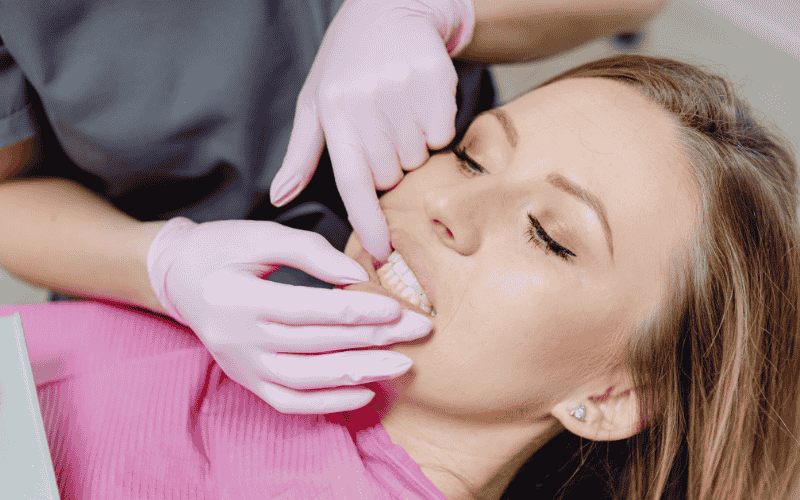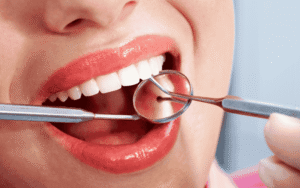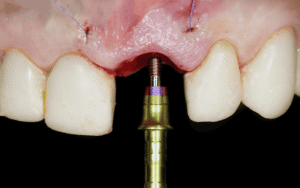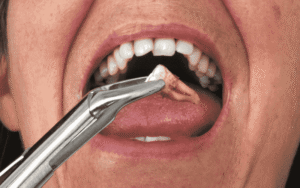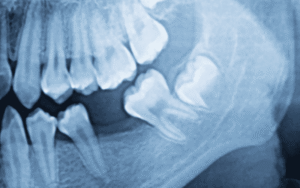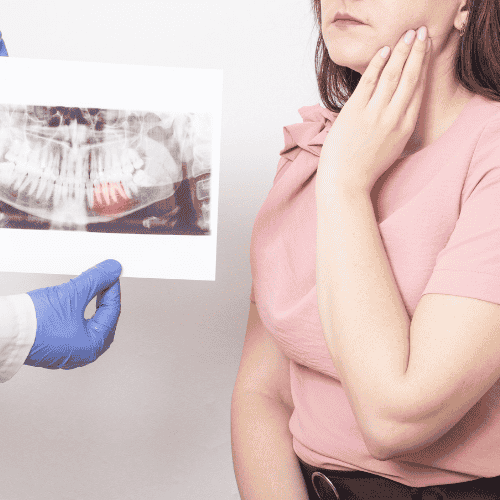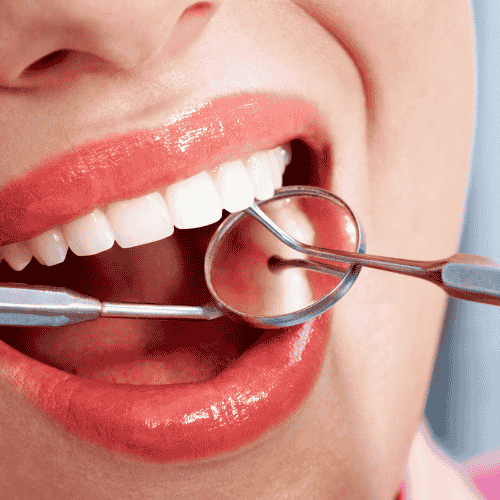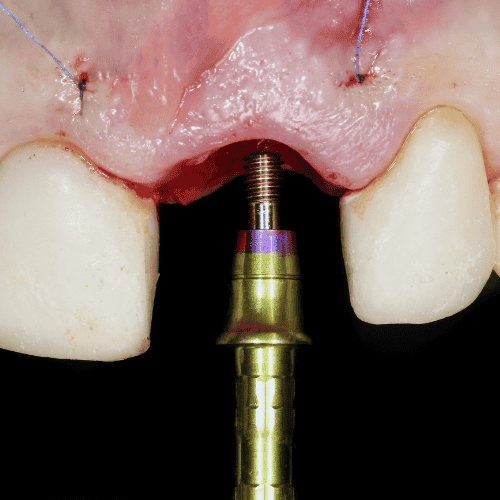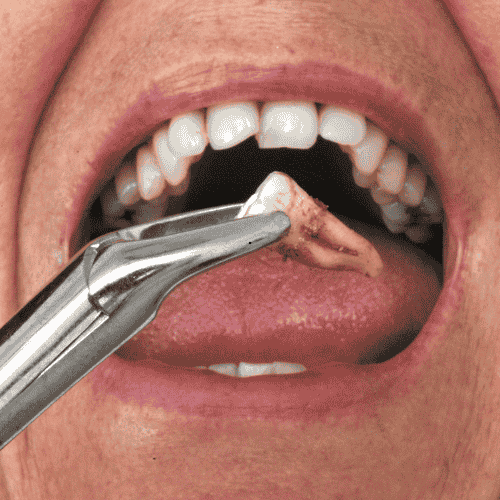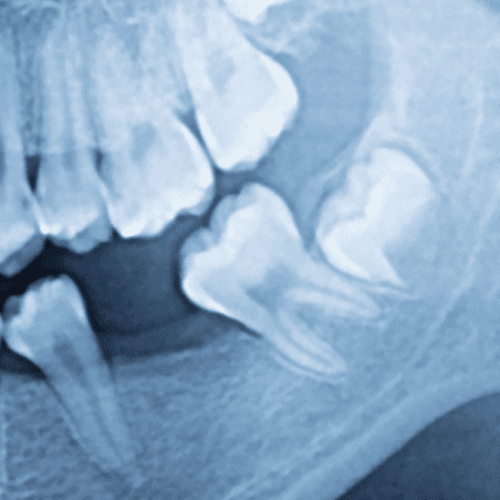Most dentists removed wisdom teeth as a preventive strategy for years. Early removal was thought to minimise congestion and infection. As dental science advances, specialists are questioning this standard practice. More specialists are arguing for a conservative approach, indicating that not everyone needs wisdom teeth removed. This change has led many to ask, why you shouldn’t remove wisdom teeth and why not to remove wisdom teeth if they aren’t causing problems.
Understanding oral health and improving imaging and diagnostics have changed how dentists examine and treat wisdom teeth. This article will explain why you shouldn’t get your wisdom teeth removed and what factors should impact your choice. A reputable dentist can help you choose the proper oral health treatment for your requirements.
Understanding the Purpose and Function of Wisdom Teeth
Wisdom teeth (third molars) usually emerge in late teens or early 20s. Our ancestors used these teeth to break down difficult meals like raw vegetables and meat. These teeth were needed for grinding since diets were different then.
Our diets and food processing have improved throughout time, making wisdom teeth less necessary. They still affect many individuals and may cause tooth difficulties. Understanding their initial role may explain why can’t you keep your wisdom teeth even if they are no longer essential to existence.
How Dental Practices and Perspectives Have Evolved Over Time
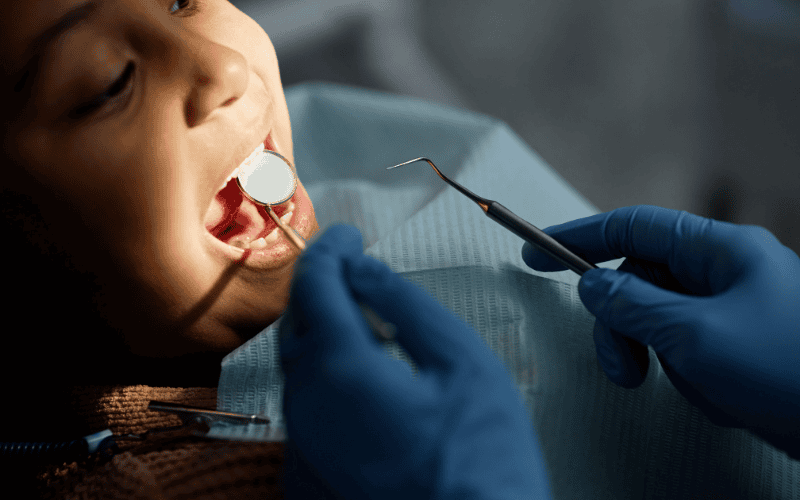
In the past, it was normal to remove wisdom teeth before they caused problems. Wisdom teeth were supposed to cause overcrowding, infections, and misalignment. Many dentists urge early extraction to prevent these issues.
As dental science and technology improved, dentists reconsidered this blanket approach. With enhanced imaging and dental health knowledge, professionals no longer recommend removing all wisdom teeth. Not removing wisdom teeth is now seen as a most suitable option as per your oral health, tooth location, and risks and problems.
What the Latest Research Says About Wisdom Tooth Extraction
Wisdom tooth extraction has been substantially challenged by recent studies. In the past, this method was thought to be a way to avoid crowding, imbalance, and impaction. Research shows that many people’s wisdom teeth come in without any problems.
Studies suggest that many individuals have enough room for wisdom teeth to operate like regular molars. Improved dental imaging and tailored therapy allow dentists to evaluate each case for extraction. This viewpoint change shows that regular removal may not be essential for everyone and raises questions such as do I need my wisdom teeth removed or what if I don’t get my wisdom teeth removed.
Possible Risks and Complications of Removing Wisdom Teeth
Like any other treatment, getting your wisdom teeth out includes risks and issues. Taking out wisdom teeth could be helpful, but it also has risks such as; nerve damage, infection, and slow recovery.
A broken or missing blood clot at the extraction site leaves the bone prone to infection, causing a dry socket. Rarely, nerve injury may cause temporary or permanent numbness or tingling.
If your wisdom teeth aren’t hurting your oral health, you might not need to extract them. Patients can avoid these risks and pain by being cautious and only remove them when they are really needed. For many, the question arises; is it bad to remove wisdom teeth if they’re not problematic?
When Wisdom Teeth Should Still Be Removed (Exceptions to the Rule)
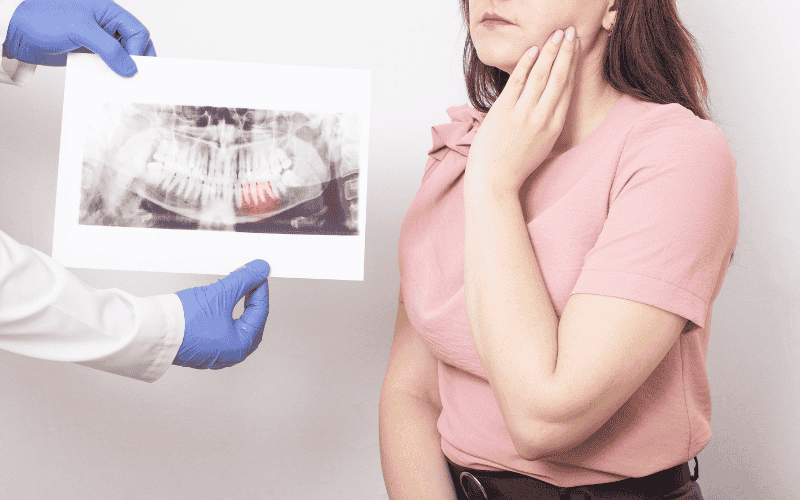
Many individuals can maintain their wisdom teeth, but sometimes they must be removed for oral health. Here are some reasons your dentist may propose wisdom tooth extraction:
- Insufficient space: The first reason is that if there isn’t enough room in the jaw, wisdom teeth may get stuck or not come out at all. In these cases, removal is often necessary.
- Infection or dental decay: Wisdom teeth are hard to clean, causing cavities and infections. If rotting or sick, they may require extraction to prevent oral harm.
- Damage to adjacent teeth: Wisdom teeth may push on surrounding teeth, causing misalignment, overcrowding, or other issues. Eliminating wisdom teeth may help align teeth.
- Pain and discomfort: Some people may suffer pain, swelling, or discomfort during wisdom tooth growth. If these symptoms worsen your dental health, your dentist may consider removal.
Still, don’t remove wisdom teeth unless medically necessary. A dentist can assess why do they pull wisdom teeth and whether your case truly needs extraction.
Monitoring vs. Immediate Removal: Which Is Right for You?
Modern dentistry handles wisdom teeth wisely rather than removing them. Many dentists now propose frequent checkups to monitor wisdom teeth instead of removing them. This is more personalised, with intervention only required if pain, infection, or tooth damage occur.
The patient and dentist may monitor wisdom tooth development. Removal may be needed for impaction, misalignment, or gum disease. If the wisdom teeth are healthy, well-positioned, and not troubling you, they may not need surgery. Based on your needs, your dentist may provide a solution.
How Individualised Treatment Plans Protect Your Oral Health
Everyone’s dental needs are different, especially for wisdom teeth removal. The best therapy depends on tooth location, jaw size, alignment, and potential concerns.
Dentists now take a more careful and individualised approach. By considering symptoms, wisdom tooth location, and risk, dentists can provide the best care.
This personalised approach eliminates unnecessary procedures and addresses possible issues to maintain dental health. It allows early oral issue treatment, which is healthy.
Advancements in Oral Hygiene and Preventive Dental Care
Modern dental hygiene has kept wisdom teeth healthy. Professional dental appointments, brushing, and flossing prevent harmful germs and plaque.
These advances make wisdom teeth less likely to deteriorate, infect, or need extraction. However, early detection and treatment in regular checkups allow wisdom teeth to remain healthy without extraction.
Active oral hygiene can prevent complications, preserve natural teeth, and improve oral health. If extraction is necessary, remember the importance of food to eat after wisdom teeth removal to support recovery.
Is It Ever Too Late to Remove Wisdom Teeth?
Most people get wisdom teeth in their late teens or early twenties, although others get them in their fifties or sixties. Wisdom teeth removal may be essential, but it’s never too late.
If an impacted wisdom teeth causes significant pain, discomfort, or other health issues, treat it quickly. As the wisdom tooth infection spreads to the gums and jaw, it may cause serious health issues. Untreated infections may increase cardiovascular disease risk because your immune system fights them.
Ask your dentist about wisdom teeth pain or health issues. Removing teeth may not always be essential, depending on your circumstances and tooth health. For some, especially during Turkey dental treatment trips, timing and necessity are crucial to discuss with specialists.
How Many Wisdom Teeth Should Be Extracted at Once?
Although uncomfortable, wisdom teeth extraction is seldom painful. Despite the fear, removing two or all four wisdom teeth in one session may be beneficial.
Most extractions use local anaesthesia. If just two wisdom teeth are removed, generally the top and bottom, you may eat on the opposite side until the swelling diminishes.
Surgery to remove all four wisdom teeth may be quicker and less disruptive with anaesthesia. This reduces the number of surgeries, healing time, and problems.
What to Do If You Experience Pain or a Dental Emergency
Consider a wisdom teeth extraction, a dental emergency and seek immediate treatment if you experience severe discomfort. Dentists often provide emergency or overnight appointments. After checking your teeth, an after-hours dentist may recommend medication or drain an infection.
For severe pain, oedema, or infection, you may require further treatment. Preventing the infection from worsening and harming your health requires immediate treatment.
General practitioners may not help with a dental emergency. Avoid the hospital or A&E unless you have serious symptoms like excessive bleeding or trouble breathing, eating, or speaking, which may need rapid treatment.
Consult your dentist for any issues or chronic discomfort to ensure proper treatment.
Expert Recommendations for Keeping or Removing Wisdom Teeth
Dental experts are updating wisdom teeth therapy. General dentists advise patients to make educated choices based on dental checkups instead of tooth extraction. Wisdom teeth should only be removed after a thorough risk-benefit review.
Overall, dental research and customised oral health care have reduced routine extractions. Dentists are increasingly using customised treatment plans that focus monitoring and intervention only when needed. This approach helps patients avoid early wisdom teeth removal risks. Consult a dentist before removing wisdom teeth.



